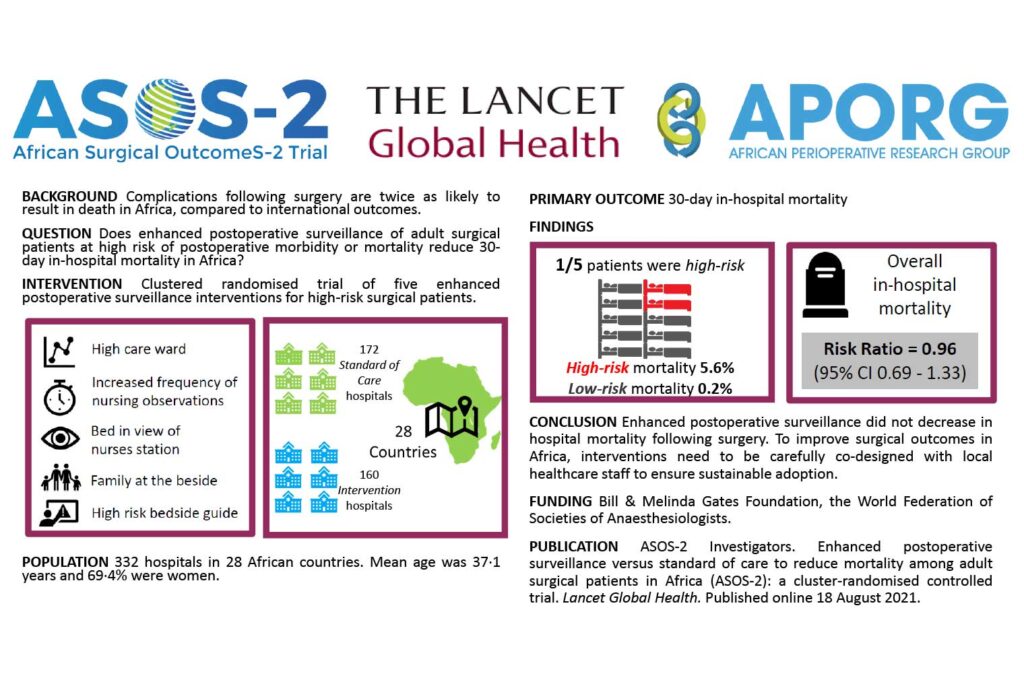Leon du Toit, MBChB, FCA(SA), instructor in the Department of Anesthesiology and member of the African Perioperative Research Group (APORG), served on the steering and writing committees for the recently-published Enhanced postoperative surveillance versus standard of care to reduce mortality among adult surgical patients in Africa (ASOS-2): a cluster-randomized controlled trial, published by the ASOS-2 investigators in The Lancet. Du Toit participated in the conceptualization of the trial, the protocol development, implementation, and the parallel process evaluation.
The ASOS-2 project was a response to the findings in ASOS-1, that African surgical patients are twice as likely to die in the hospital after surgery than the international average. This excess mortality is attributed to the failure to rescue patients who complicate following surgery. The ASOS-2 trial aimed to shift the limited existing resources available for postoperative surveillance towards those patients at higher risk of developing postoperative complications.
ASOS-2 was the first clinical trial the group conducted. The ongoing output from this group demonstrates eagerness among African perioperative clinicians to collaborate in multinational research to improve the outcomes of their patients.
“The group produces research in an extremely challenging environment and does so despite lack of funding,” says du Toit. “Some of the participating hospitals persevered despite civil war, strikes, extreme poverty, and lack of basic infrastructure. Local investigators sometimes had to travel days to reach a remote hospital for data collection or to meet with a regulatory body,” he continued.
“The conduct of this trial significantly increased the perioperative research capacity on the African continent.”
Leon du Toit, MBChB, FCA(SA)
A generic fix for surgical mortality in Africa didn’t work in this trial, however, the APORG has demonstrated that it has the capacity to conduct a perioperative trial at scale in Africa. This landmark project will help to inform the future endeavors of the APORG specifically and collaborative perioperative research in general.
In a second publication in the British Journal of Anaesthesia, Understanding the performance of a pan-African intervention to reduce postoperative mortality: a mixed-methods process evaluation of the ASOS-2 trial, the group reports the implementation outcomes of the ASOS-2 trial.
For additional information, or if department members would like to become involved in the APORG, please contact du Toit.
